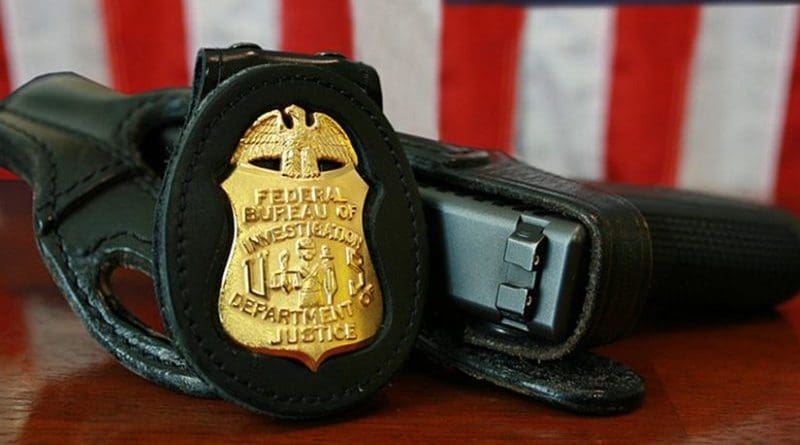FBI Gives Documents To Congress Relating To Memo Targeting Catholics
By CNA
By Joe Bukuras
The FBI handed over to Congress on Tuesday internal documents relating to the bureau’s now-withdrawn leaked memo that recommended investigating devotees of the Traditional Latin Mass.
The leaked memo, dated Jan. 23, which originated from the bureau’s Richmond office, claims that racially or ethnically motivated violent extremists will likely become more interested in “radical-traditionalist Catholic ideology” within the next 12 to 24 months “in the run-up to the next general election cycle.”
The new documents were only made available to the House Judiciary Committee. The FBI has requested that the committee not disseminate the documents without consulting it first.
The document release comes after Ohio Republican Rep. Jim Jordan, the chairman of the committee, threatened to hold FBI director Christopher Wray in contempt over the bureau’s delay in responding to two subpoenas investigating alleged First Amendment violations from the bureau.
Those alleged violations relate to both the FBI’s investigation of parents who voiced dissent at public school board meetings and the Richmond office’s internal memo targeting “radical traditionalist” Catholics and their possible ties to “the far-right white nationalist movement.”
When the memo describing the targeting of Catholics was leaked in February, the U.S. bishops and many members of the Catholic community responded with outrage. In February, 20 state attorneys general signed a letter to U.S. Attorney General Merrick Garland condemning the FBI memo.
In response to CNA’s inquiry for comment on the documents, a House Judiciary Committee spokesperson said: “We’re reviewing the documents and everything remains on the table.”
The Richmond FBI office’s memo concerning Catholics “failed to meet the FBI’s standards and was withdrawn,” the FBI’s acting assistant director Christopher Dunham said in a Tuesday letter to Jordan, which was obtained and published by the Washington Examiner.
The bureau’s Inspection Division is conducting an internal review of the process in which the memo was created and is nearly finished, the letter states.
The letter said that the Inspection Division is available to brief the House Judiciary Committee on its review as early as Aug. 22.
The FBI’s Richmond document is referred to in Dunham’s letter to Jordan as the “January 23 Domain Perspective.”
“Since receiving the committee’s requests regarding the January 23 Domain Perspective, the FBI has made two document productions totaling 266 pages and has provided additional information in response to the subpoena’s requests,” the letter states.
The FBI gave the House Judiciary Committee the memo on March 23; however, it was redacted due to “law enforcement sensitive information, such as information specific to ongoing criminal investigations, as well as personally identifying information,” Dunham’s letter states.
A version of the memo with fewer redactions has been produced along with the new documents, the letter states.
“Per the committee’s request and based upon the current law enforcement sensitivity of information referenced in the document, we have since endeavored to remove as many of these redactions as possible and are attaching here a less-redacted version of the January 23 Domain Perspective,” the letter states.
“We respectfully request that the committee not publicly disclose or otherwise release the information reflected in this document without prior consultation with the FBI,” Dunham wrote.
The letter also says that on April 28 the FBI had produced documents and a letter “providing additional, detailed information” in response to Jordan’s April 10 subpoena on the FBI Richmond memo.
However, a July 17 press release from the House Judiciary Committee states that the documents shared by the FBI have been either “heavily redacted to exclude critical information” or the bureau has not produced the appropriate requested documents.
Dunham’s letter says that the documents and letter provided by the FBI in response to the April subpoena “confirmed that no other intelligence products contained the terms identified in the subpoena.”
The letter also says that documents “related to the Richmond field office’s outreach to the local faith communities and communications with the Catholic Diocese of Richmond” were provided by the FBI on April 28.
In Jordan’s recent July 17 letter to Wray, he said that the committee believes that “additional communications exist” between the FBI and the Diocese of Richmond, beyond what has already been handed over.
“Redacted documents produced to the committee highlight communications between the FBI and the Diocese of Richmond, but the redactions preclude the committee from fully understanding the nature of these interactions,” Jordan said in his letter.
“Further, the committee believes additional communications exist, such as the organizing and scheduling of the March 24 meeting between FBI Richmond and the Catholic Diocese of Richmond, that are responsive to the subpoena,” he added.
In his letter, Dunham responded by saying that the FBI is “unaware of such documents.”
“However, we are continuing our diligence to confirm whether any such documents exist and, if they do, we will produce them to the committee expeditiously,” he said.
“Please note that of those communications previously produced, the FBI redactions were only for personally identifying information, almost all of which pertained to members of the public,” Dunham wrote.
“Should the committee wish to see an unredacted copy of these materials, the FBI is amenable to producing such documents in camera.”
Dunham wrote that the FBI has “undertaken an electronic search” for records related to the Richmond memo.
“Having received no feedback from the committee on how FBI should prioritize the categories of information requested in your April 10 subpoena, the FBI has searched for potentially responsive materials on both the unclassified and classified enclaves of FBI systems,” the letter states.
The bureau is currently reviewing the records and will release them on a “rolling basis consistent with our obligations regarding law enforcement, national security, and other executive branch authorities and confidentiality interests,” the letter states.
“Disclosure of law enforcement sensitive information could have a significant impact on the FBI’s operations. Accordingly, we respectfully request that the committee not disseminate or otherwise disclose these documents without prior consultation with the FBI,” Dunham wrote.

